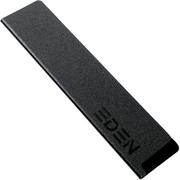

Tienes un navegador web muy anticuado. Es posible que el sitio web no funcione correctamente.





Este producto se ha pedido. El plazo de entrega es orientativo. Por favor, ten en cuenta los retrasos.
4,3 cm
20 cm
34,1 cm
230 g
viernes, 20 de febrero de 2026
lunes, 1 de diciembre de 2025
viernes, 21 de marzo de 2025
viernes, 27 de diciembre de 2024
domingo, 10 de noviembre de 2024
Ver todas las reseñas
10º
4,3 cm
20 cm
2,2 mm
Longitud del mango
12,8 cm
34,1 cm
230 g
Material del mango
Micarta
Tipo de acero
CMV60 Cryodur-steel
60 Dureza Rockwell C
Características de la hoja
liso
Acabado de la hoja
Damasco
Apto para el lavavajillas
no
Diestro o zurdo
simétrico
Tipo
gyutoh
plain edge
ángulo de afilado asiático
Tipo de mango
mango oriental
20 Grado
Se entrega como un set
no
1
